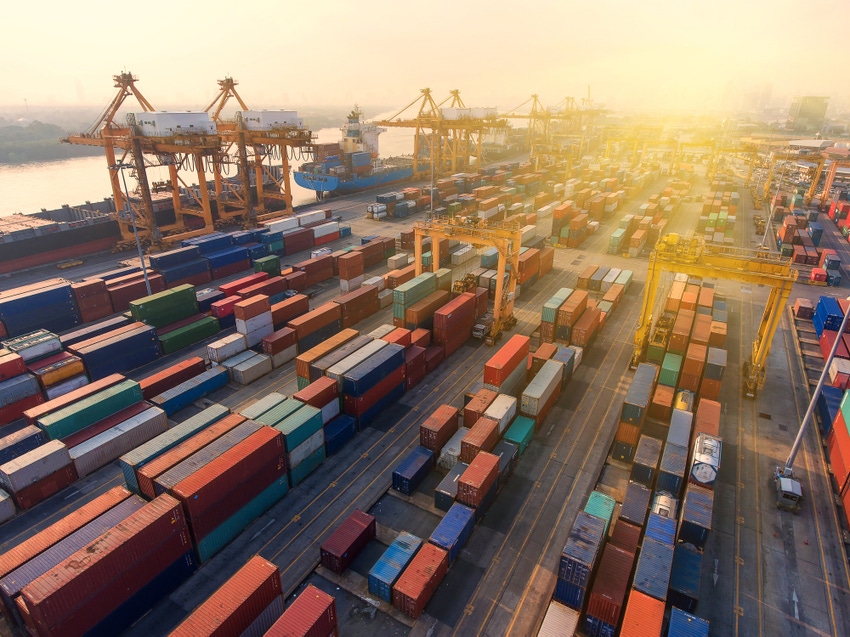Canada, Mexico and U.S. express commitment to a modernized NAFTA.

Trade was front and center during the first day of the 22nd World Meat Congress, being held this week in Dallas, Texas. Hosted by the International Meat Secretariat and the U.S. Meat Export Federation (USMEF), the event attracted more than 700 attendees from at least 48 different countries.
As North American Free Trade Agreement (NAFTA) negotiations heat up and the U.S. continues trade negotiations with China, numerous speakers touched on the importance of trade, collaboration and communication and also competition.
During opening remarks, Philip Seng, past president of the International Meat Secretariat and chief executive officer emeritus of USMEF, warned against the protectionism that is currently emerging.
“Protectionism is rising, and it’s rising quite quickly. How do we do something about rising protectionism, because in my opinion, protectionism is the enemy of agriculture, and protectionism is the enemy of trade,” Seng said.
Argentina's Minister of Agro-industry Luis Miguel Etchevehere noted that his nation knows all too well the negative impact protectionism imposes on agricultural producers, and reversing this damage is a priority for President Mauricio Macri, who was elected in 2015 on a pro-trade agenda.
“I come from a country where a former government prohibited the exportation of beef because of a demagogic policy aimed at having very cheap beef for many years,” Etchevehere explained. “That produced a 12 million-head reduction in our beef cattle stock, and it was a very big mistake. When President Macri arrived, he did the opposite. He opened the economy, and we continue to work on opening markets, because we know that we must have access to enough markets for our industry to reach its full potential.”
Seng noted that trade agreements, like NAFTA, have been about much more than just trade. “What trade has done for all of us is promoted understanding and relationships that are so critical to nations and to agriculture,” he said.
He added, “I’ve always used the phrase ‘we cooperate so we can compete,’ and I think that’s the essence of the World Meat Congress. Some of us here are competitors, but we cooperate because we have similar issues to address.”
Canada ready to work
Lawrence MacAulay, Canada’s minister of agriculture and agri-food, discussed the importance of trade, saying it drives business, it drives the economy and it is key to feeding the world.
“In North America, the red meat industry is integrated and growing. Over the past decade, red meat trade between Canada and the United States has almost doubled. The fact is, we’re make great food together,” MacAulay said.
While keeping a strong focus on the world, he said there is a need to work on a stronger network here in North America.
“Canada remains ready to work with North American partners to modernize the North American Free Trade Agreement in a way that is a benefit to all sides, as all trade agreements must be,” he said, adding that since NAFTA was signed, North American trade has tripled, and agricultural trade among the three countries has quadrupled.
“We know it is the right time to modernize NAFTA,” he said. “We know that any disruption of the supply chain on this continent would hurt our industry, our economies and the livelihood of our citizens,” MacAulay said.
The government of Canada and Prime Minister Justin Trudeau remain fully engaged in NAFTA, he added. “We want to make a great deal better. The bottom line is a partnership is the way forward to meeting the demand for the world meat industry,” he said.
Demand for meat is growing, MacAulay explained, adding that the industry can meet that demand sustainably through a strong focus on innovation and trade that is “fair, based on rules and fair science.”
“More and more, our industry is a global industry. More and more, we share the same opportunities and the same challenges. More and more, we need to sit down and chart our path together. We need to build on our integrated industry here in North America and around the world,” MacAulay said.
Mexico committed as election approaches
Kenneth Smith, Mexico’s chief negotiator for NAFTA, said negotiations are currently at about 70-75% completed, with proposals for the tougher issues still on the table: automotive rules of origin, dispute settlement and the sunset clause.
“These are, by nature, the difficult type of negotiations on these issues. They will go until the end,” he said.
Smith said Mexico made specific proposals during the month of May, and the country is waiting to hear back from the U.S.
Mexico will elect a new president in July, and Smith explained how the elections could affect the negotiations. “There are several scenarios," he said. "One is we conclude (NAFTA talks) before the transition of power.” If this happens, then the new administration would determine whether that package is satisfactory to them, he said.
If NAFTA negotiations haven’t concluded, Smith said it will be up to the new administration to pick up where negotiations left off on Nov. 30.
Nonetheless, he said the main presidential candidates have all talked about the importance of NAFTA and the benefits it has brought to Mexico.
“We will continue negotiating as long as it takes. We will not rush into closure if the substance is not there. Regardless of political process in Mexico or the elections in November, we will continue negotiating, and we will close only when Mexican priorities have been addressed and we can come back to our country and say we have an upgraded NAFTA that is better than the one we had before.”
U.S. seeks reciprocal trade
U.S. Agriculture Secretary Sonny Perdue touched on the importance of trust and mutual respect in trade, saying, “I think it’s important we meet as global leaders, because as we well know, Canada, the U.S., Mexico and other nations will compete, as we should. Hopefully, we can do that in a wholesome and healthy fashion.”
He added, “Competition, I believe, is good because it drives all of us to be better, and we want to be better for mankind. It drives us to excellence and higher productivity. As (Seng) said, that impacts more than just our bottom line or our balance sheets. The relationships or global unity bring us together and solve more problems through the noble cause of food security.”
Trade is vital to agriculture, but it is also vital to feeding the people of the world.
“I believe sincerely that the best humanitarian policy to feed the world is free trade,” Perdue said.
Agricultural trade is critical for the U.S. farm sector and the American economy. In 2017, U.S. exports of food and farm products totaled $138.4 billion, up from 134.7 in 2016. “By all predictions, it looks like we are on for another record year this coming year," he noted.
“President (Donald) Trump campaigned on the promise of getting the U.S. fair trade agreements,” Perdue told the audience. “He’s demonstrated these theories about free and fair trade in matters where he felt the U.S. is not getting a fair deal. He’s made it clear that he will take decisive action to level that playing field. His goal is a free and open market: reciprocal trade. ‘Treat me like you want to be treated.’ “
Perdue said the agriculture industry’s concern surrounding NAFTA is a “legitimate anxiety.”
“Obviously, placed in the situation of low commodity prices already, we can’t afford trade disruptions. We’ve got to keep the markets going. We hope to get this resolved as soon as possible,” he said.
About the Author(s)
You May Also Like
.png?width=300&auto=webp&quality=80&disable=upscale)
.png?width=300&auto=webp&quality=80&disable=upscale)

